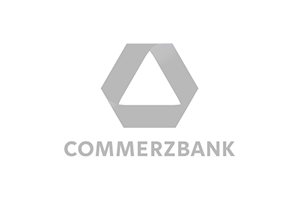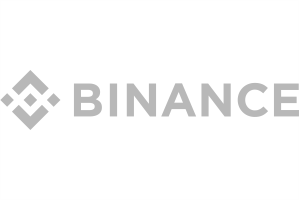The cryptocurrency segment of the jurisdiction may be of interest to foreign entrepreneurs because of its potential high profitability of the business in the short term. The exchange of cryptocurrencies for fiat money in this jurisdiction is not particularly difficult. As of 2021, we can talk about the high liquidity of the segment.
Starting a business in this area is quite simple but a necessary precondition is fully consistent of business with the mandatory requirements for combating money- laundering and the financing of terrorism.
Status of Cryptocurrencies and Permission to Work with Them
Local regulators (the Central Bank of Portugal and The Securities Market Commission) do not prohibit cryptocurrencies activities, but in several warnings issued, they emphasize its high-risk nature.
The Central Bank authorizes entities that carry out transactions with crypto assets, and the list of such entities is presented for public acknowledgment. Viewing this list may reduce the risks related to the token acquisition from entities whose work is compliant or non-compliant with mandatory requirements.
Crypto assets are not equated to fiat currencies. Tokens are divided into those that have the characteristics of financial instruments, as well as those that are assets in their pure form. The country does not have separate legislation adopted specifically for cryptocurrencies. Their circulation is governed by the rules of civil and banking law. When these funds have the characteristics of securities, the rules of financial law also apply. Irrespective of the nature of crypto assets, their circulation is subject to consumer protection legislation, as well as anti-money laundering and terrorist financing regulations.
We should separately mention the options when crypto assets are considered as financial instruments:
- if crypto assets are documents (in documentary or non-documentary form) that provide one or more rights of a private economic nature;
- if, by certain characteristics, they are similar to existing types of securities, as they are considered by local law.
In regard to the last item, it should be clarified that local regulators would take into consideration the options that are available to investors and involve the obligation of the issuer to take any action as a result of which the investor expects to receive income from his investment, such as (1) implying a right to any type of income (that is, the right to receive income or interest) or (2) the issuer or related legal entity taking actions aimed at increasing the value of tokens.
To start working with cryptocurrencies in this jurisdiction, you need to obtain the status of a virtual asset provider. The acquisition process is not easy in terms of collecting data and undergoing the inspection, but it is possible. This was confirmed by cases of issuing licenses to two crypto companies – Cryptoloja and Mind The Coin.
Registration Procedure
It is possible to obtain a license for cryptocurrency in Portugal by going through several stages:
- Determination of the types of activities with cryptocurrencies that the crypto company will carry out, as well as their expected volume
- Developing a business plan.
- Opening of a company (of the future applicant).
- Collection of data about the founders, beneficiaries, and managers of the company.
- Developing policies for conducting and monitoring transactions with crypto assets, as well as other compliance documents.
- The application package is forming.
- Direct registration with payment of required fees.
- Issuance of a license, if approved.
In timing, the procedure for obtaining a license for the exchange of cryptocurrencies in Portugal takes 9 months. This is information as of 2021 based on the aforementioned cases of Criptoloja and Mind The Coin.
Start a Cryptocurrency Company
As noted earlier, a resident company can obtain a license for cryptocurrency in Portugal. The most appropriate option for this is a limited liability company. The specific choice of the organizational-legal form depends on the goals of the company, the nature, and the volume of the proposed operations. Lawyers of Aotopay will be happy to help choose the right option for your business.
The procedure for creating a crypto company provides:
- Identification of future activities and developing a business plan.
- Selection, verification, and reservation of a commercial name for a crypto company.
- Collection of information about the beneficiaries, founders, and managers of the company.
- Finding a registration address for a crypto company.
- Preparation of constituent and registration documents.
- Formation and submission of a package of necessary documents for registration.
- State registration, if approved.
- Registration for tax and employment purposes.
- Obtaining additional licenses for regulated activities.
Each case of opening a legal entity differs depending on the initial data. Lawyers of Aotopay will be happy to consult in detail on the issue and develop an action plan with its further implementation.
Compliance Aspects
The Central Bank pays special attention to the issue of compliance with the rules in the sphere of combating money laundering and the financing of terrorism. Among the transactions within which the relevant rules must be observed, we note:
- transactions for the exchange of virtual assets and fiat currencies, as well as several types of virtual assets;
- virtual asset transfer services;
- storage and management services for virtual assets or instruments that allow controlling, possessing, storing or transferring, including private cryptographic keys.
The entities that carry out the above operations must, among other things, carry out the following actions:
- identify customers, as well as their representatives in cases provided for by law, requesting at least an identity document (for an individual) or registration documents (for a legal entity);
- take all reasonable steps to develop an understanding of the customer’s ownership and control structure;
- receive information about the purpose and intended nature of the business relationship;
- form a customer’s risk profile depending on the characteristics of transactions, the source and purpose of funds within the framework of the business relationship or a one-time transaction;
- to constantly monitor the relationship with the customer;
- collect, store and keep up-to-date information about customers and transactions with crypto assets;
- apply simplified or strict control procedures under certain conditions;
- refuse to conduct a transaction when there is a risk of money laundering and terrorist financing;
- submit reports in a general way, as well as on cases related to money laundering obtained by criminal means and financing of terrorism;
- maintain the confidentiality of customer and transaction data;
- educate employees responsible for compliance with the rules on combating money-laundering and the financing of terrorism.
These are the basic actions that an authorized entity must perform. Lawyers of Aotopay will be happy to consult you in detail on compliance issues








